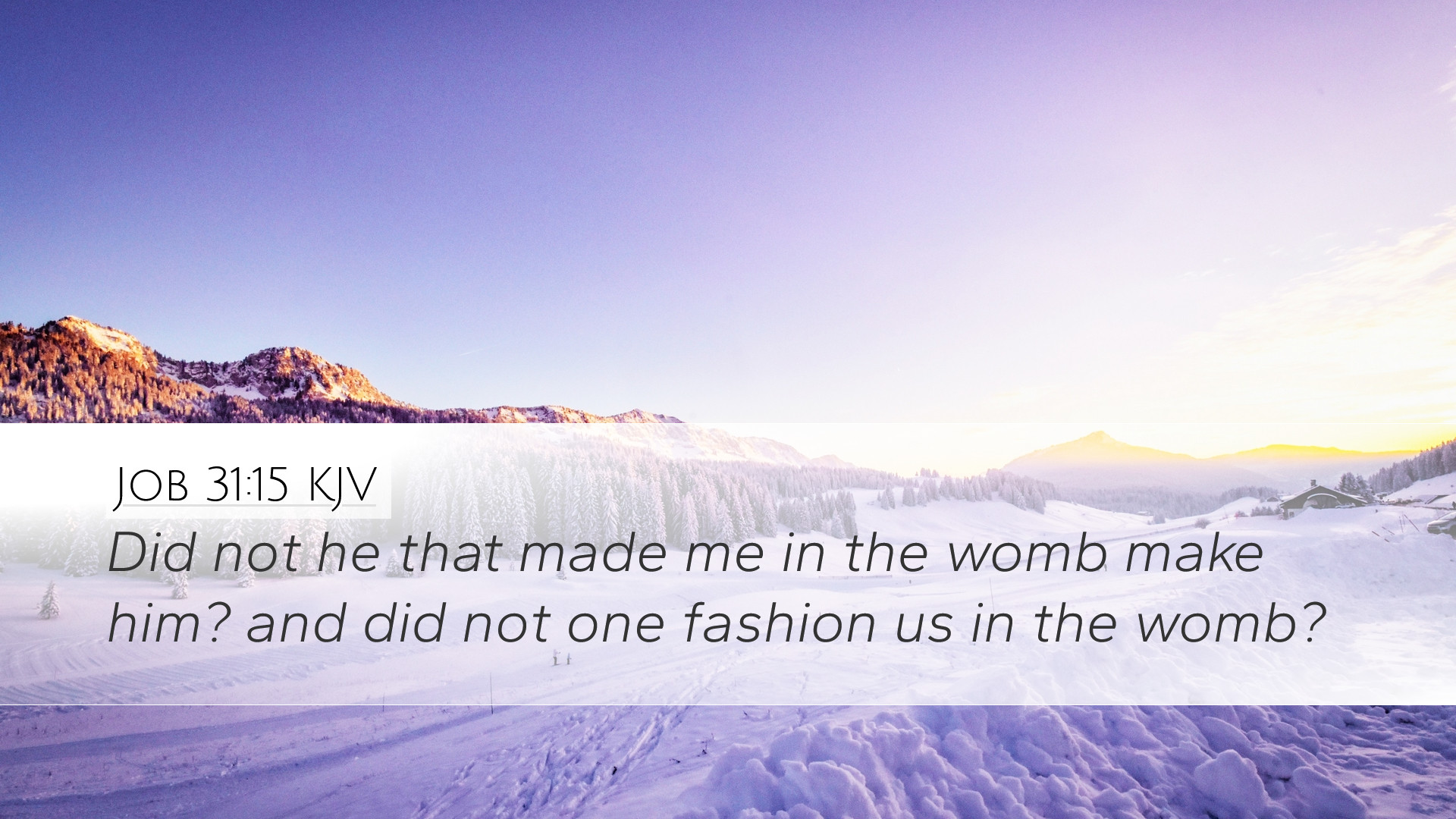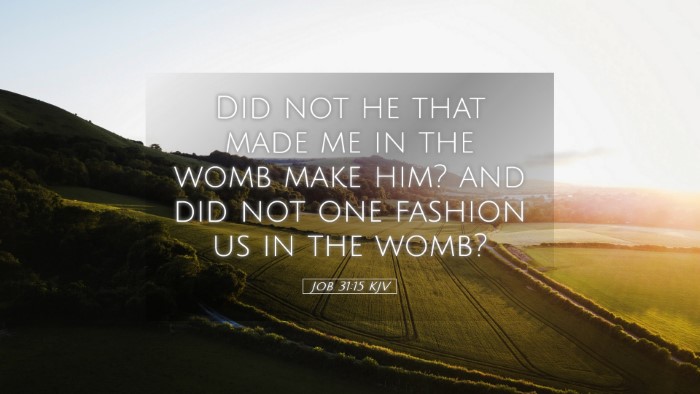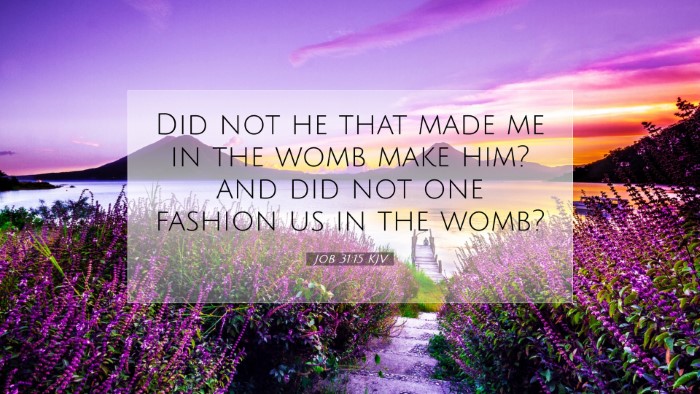Commentary on Job 31:15
Verse Context: Job 31:15 states, "Did not he that made me in the womb make him? and did not one fashion us in the womb?" This verse is part of Job's defense of his integrity amidst the profound suffering he endures and the erroneous accusations of his friends.
Overview
This verse underscores the fundamental truth of the equal dignity of all human beings as creations of God. Job emphasizes that he recognizes the shared origin and nature of all humanity, asserting both his self-worth and the worth of others through the lens of divine creation.
Exegesis and Commentary
Matthew Henry’s Commentary
Henry emphasizes that Job appeals to the Creator in his plea for justice. He points out the unity of mankind, created by the same divine hand. Henry notes that this acknowledgment should incite a sense of humility, not only in how we view ourselves but also in how we view others. The point made here is that all people, regardless of their circumstances, are fashioned by God. Thus, one ought not to despise or look down upon another.
Albert Barnes’ Notes
Barnes offers insight into the theological implications of Job’s statement. He expands on the creator-creature relationship, highlighting that Job’s assertion encompasses not just biological creation but also kinship and divine purpose. He indicates that God’s sovereignty in creation also implies His sovereignty over human destinies, which serves as a comfort to those suffering unjustly. In referencing this equality, Barnes points out that Job is inquiring rhetorically, emphasizing the foolishness of looking down on someone simply due to their social status or standing.
Adam Clarke’s Commentary
Clarke delves into the Hebrew text, noting the significance of "fashioning" in the womb, which he argues indicates God’s intimate involvement in the creation of every human being. Clarke also stresses the equality of all before God, emphasizing that if God is the common Father, then all are equally His children. He expresses that this understanding is pivotal for a community's moral fabric, urging believers to treat one another with respect and dignity as fellow creations of the same God.
Themes Explored
- Creation and Equality: The verse reinforces the belief that all humanity originates from the same divine source, promoting a sense of equality and worth in all individuals, regardless of their situation.
- Divine Sovereignty: Job's reference to the Creator emphasizes God's ultimate authority over life and circumstances, encouraging reverence for God's plans and purposes.
- Human Dignity: With the acknowledgment of a common Creator, Job challenges the pride and prejudice often present in societal views, urging respect and compassion for all.
- Social Responsibility: This equality imposes a moral obligation to treat others with kindness and righteousness, reflecting God's character in our dealings with one another.
Pastoral Insights
This passage serves as a rich source for pastoral ministry. It calls pastors to integrate themes of creation, equality, and dignity into their teachings and counseling. Churches can develop programs promoting inclusivity, reminding congregants of their shared identity as children of God.
Theological Reflections
The verse invites theologians and scholars to explore deeper questions related to anthropology, theodicy, and soteriology. It challenges them to reflect on the implications of God's creative work in the womb and its relation to human worth. Understanding these relationships can lead to a more robust theology of human dignity in alignment with the pro-life ethic upheld by many Christian traditions.
Conclusion
Job 31:15 encapsulates profound truths about human value and God's creative authority. By recognizing our shared origin, we can cultivate a culture of respect and love that mirrors God's intentions for humanity. Such insights are invaluable for students, pastors, and scholars seeking to understand the depth of human relationships in light of divine workmanship.


